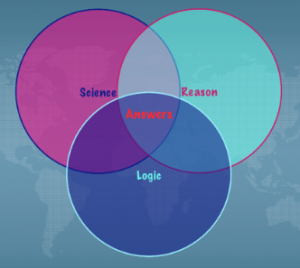This will probably be the last post responding to comments on my much-read Ricky Gervais post. The first explored why it is actually ok for people to challenge Christians, and the second presented a gospel which is not just a threat of hell. Now I come to probably the most common question:
Why do I believe things I acknowledge are a bit ridiculous?

I want to be honest up front. I don’t think the thoughts I have on this will satisfy many people.
Believing the ridiculous
This is the offending quotation from that post:
“for what it’s worth, my beliefs are ridiculous. I believe a man rose from the dead. I believe I am filled with the Spirit of God. I believe that because a man died and rose 2,000 years ago I will know eternity with a God I’ve never seen with my eyes. These are big claims. Even Paul says it sounds like foolishness and will be a stumbling block to people who don’t believe it.”
I stand by this. Any Christian who says talk of resurrection, miracles and heaven is just plain old common sense probably doesn’t understand the concepts of resurrection, miracles or heaven. Or, more likely, common sense. Like I said, Paul even said it sounds foolish.
And yet I believe it all. I would be willing to stake my life on the bodily resurrection of Jesus Christ almost 2,000 years ago, and I am giving my life in service of that same Jesus Christ. If it’s true, I have to.
But that’s the question, isn’t it? Is it true? There are two ways I want to look at that: from the perspective of ‘reason’ and from the perspective of ‘faith’.
Reasoning the ridiculous
One of the things I’ve been asked to do a number of times on Twitter and in comments here is to give some evidence for the claims I make. I’ve been told that since I make the claim there is ‘a god’, the burden of evidence is on me to prove it if I want people to believe it too.
 It will come as no shock to anyone (I hope) when I say that I cannot.
It will come as no shock to anyone (I hope) when I say that I cannot.
Of course I could demand that others provide proof there is no God, since that is what they claim. They wouldn’t be able to do that either. So this whole reason thing isn’t getting us very far so far.
A lot of the conversation seems to revolve around how the world came into being. Since science can explain things, we don’t need God anymore, surely. At times this has been presented as the knockdown reasoned argument. This makes the massive assumption that the reason people started believing (and believe now) is because they needed to explain things that don’t make sense otherwise. As it happens (and I know many of my Christian brothers and sisters don’t share this view) I affirm the theory of evolution. I’ve been amazed that is a surprise to some atheists.
In fact a lot of the assumptions about the content of my faith which I’ve heard from people who don’t share my faith have simply not been true. There is a huge breakdown in communication somewhere, and a lot of folk seem willing to lump all people of faith into one big category, make sweeping assumptions, and denounce the lot of us. In my original post, I spoke against unhelpful dialogue from Christians. Now I add that these generalisations by non-Christians don’t help either.
Faith in the ridiculous
That’s all I want to say about reason. What? Wait! You haven’t reasoned your faith, Dave! You haven’t presented us with the evidence upon which your beliefs are built, the logical steps you take to get to where you are now!
You’re right. I haven’t.
I don’t believe what I believe because of logic or reason. I absolutely assert that my faith is not illogical, it is not disproven and it correlates completely with the reality we see around us. But I can’t convince you of that. I can’t argue it.

That is not to say my faith is baseless. Jesus is an attested figure rooted in history. People have spent their lives investigating Christian claims and found they stand up to critique. There is a branch of Christian study called apologetics which articulates responses to common questions and criticisms of our faith, and they do a great job. Though that’s not my area of expertise, I do have specific answers to specific questions and criticisms you may level against my faith. Maybe if you have specific critiques, I can give specific answers. Leave a comment. But ‘Prove your faith’ isn’t helpful.
I’ll say it again: my faith is not illogical, it is not disproven and it correlates completely with the reality we see around us. My faith is not devoid of reason. It’s just not based on reason.
Ultimately, I believe what I believe because I have faith. This next sentence might anger some people. Faith is a mystery. The best description I can give is a biblical definition:
“Faith is being sure of what you hope for, and certain of what you cannot see” (Heb 11:1)
In other words, it’s being sure of something you can’t prove. So why can’t I just “let go of [my] security blanket” (quote from one of the comments)? The answer is simple and complex at the same time: I have faith, I’m sure of what I can’t prove.
Like I said, I sincerely doubt this post will satisfy many.

Pingback: TrackBack